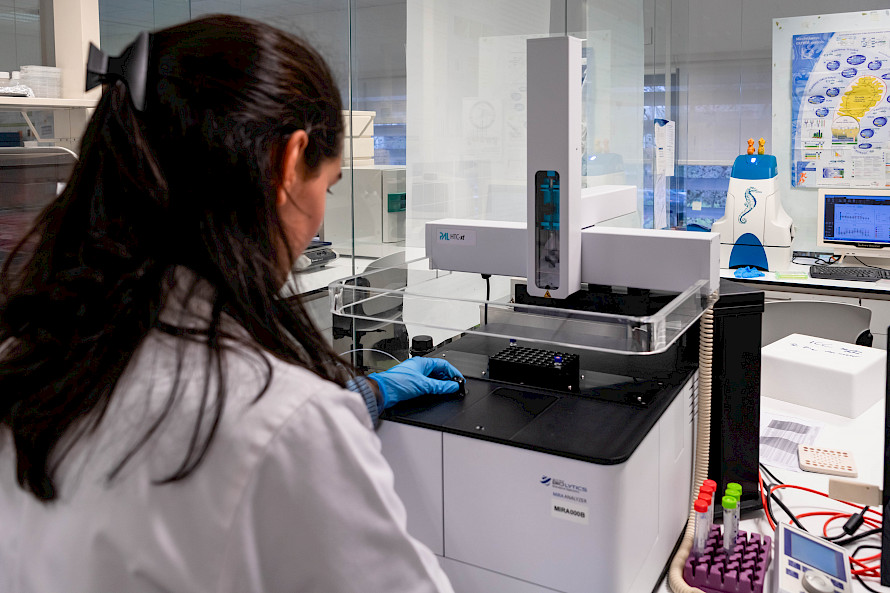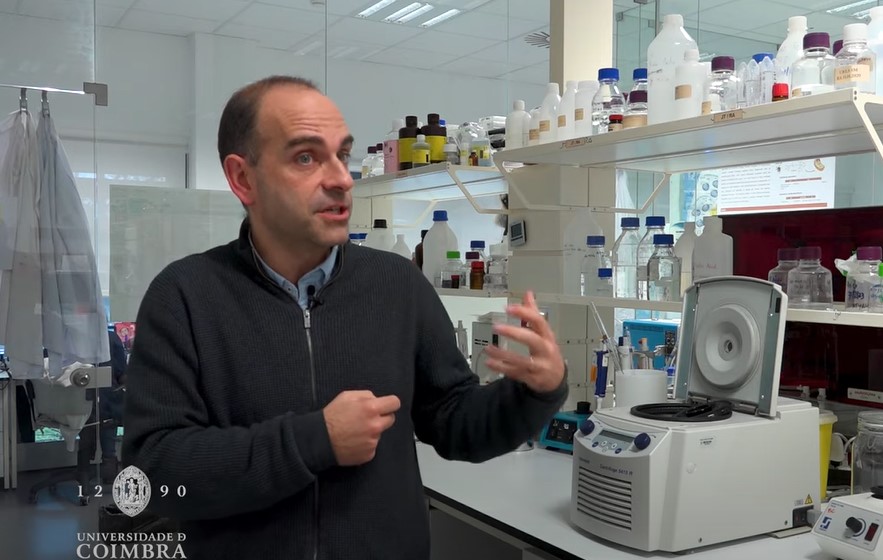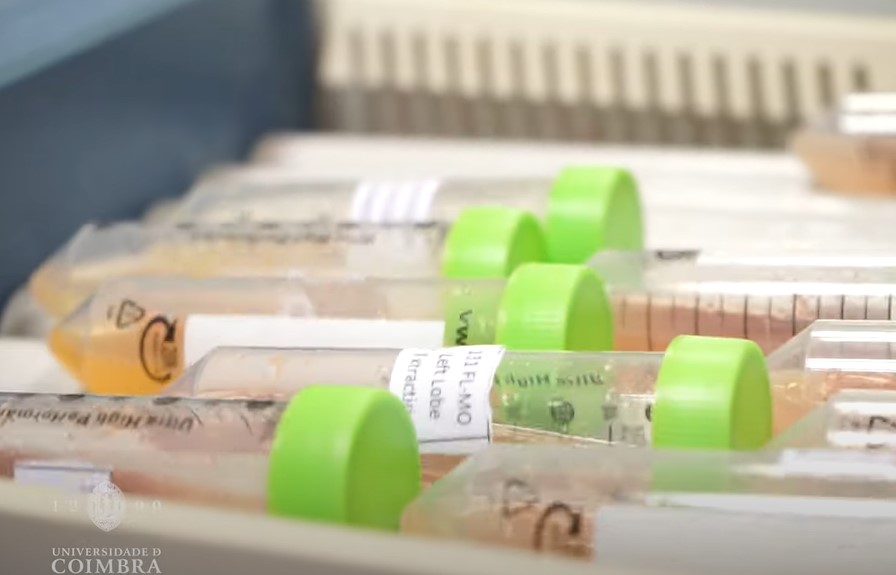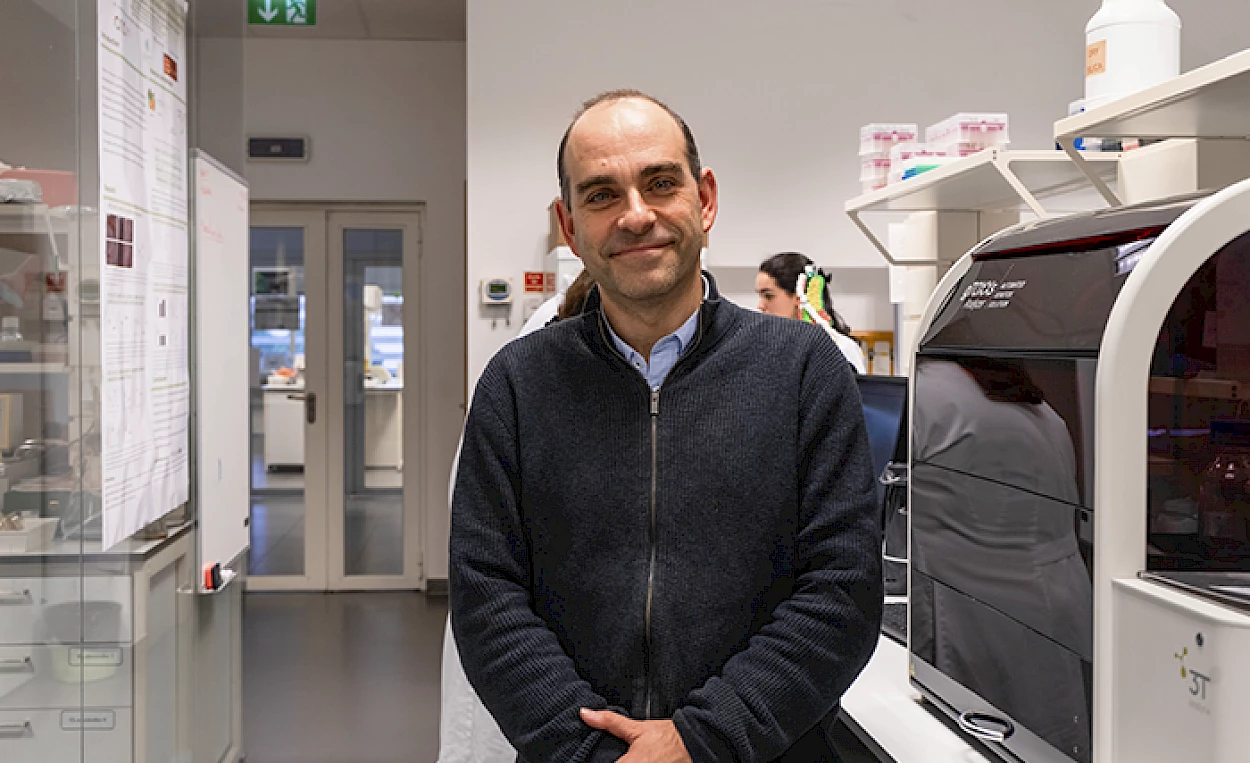PAS GRAS: Interdisciplinary Research to Combat Obesity Across Generations in Europe
Funded by the European Commission with approximately €9.5 million, the PAS GRAS research project, led by the University of Coimbra, will run until the end of April 2028. The project aims to develop interdisciplinary research and innovation strategies to drive a paradigm shift in the prevention and treatment of obesity, by providing practical solutions to promote healthy lifestyles in today's society.
"It is a perfect project for the world we live in," says Paulo Oliveira, leader of "PAS GRAS: De-risking metabolic, environmental and behavioural determinants of obesity in children, adolescents and young adults". And what kind of world is the coordinator of this ambitious research referring to? "A world that fuels obesity, where we buy products with too much sugar and where our physical activity decreases, contributing to overweight and obesity," stresses the University of Coimbra (UC).
Obesity is characterised by an excess of body fat, which is associated with health risks and is influenced by a wide range of genetic, socio-economic and environmental factors. In response to this challenge, the PAS GRAS team advocates a multidisciplinary approach to overweight and obesity. Their goal is to reduce the prevalence of obesity in different age groups by 2050, aiming for a reduction of about 15% in adults and about 30% in children and adolescents across Europe.

PAS GRAS aims to achieve this ambitious goal by assembling an interdisciplinary team to address different dimensions. These include the development of biomarkers and the monitoring of different study groups, as well as the launch of awareness campaigns to disseminate information and strategies for citizens and stakeholders. In addition, the project will create a personalised risk assessment toolbox to identify and characterise individual obesity risks. PAS GRAS will also conduct clinical trials in several European countries, including Spain, Italy, Portugal and Sweden.
Paulo Oliveira explains that "policies to combat obesity have failed, not only in Portugal, but also in Europe and the world". "The prevalence of obesity and overweight in Portugal is increasing, with an estimated 55% of the Portuguese population overweight, a percentage that is clearly on the rise," warns the researcher from the Centre for Innovation in Biomedicine and Biotechnology (CIBB) - made up of the UC Centre for Neuroscience and Cell Biology (CNC-UC), the Coimbra Institute for Clinical and Biomedical Research (iCBR) and researchers from the UC Centre for Health Studies and Research (CEISUC).
According to the PAS GRAS project coordinator, there is an urgent need to "reverse this growth curve". "Only with a project like this - which seeks to understand what lies behind obesity and excessive weight gain at all its different levels - can we change this upward trend in obesity in different age groups," adds the CNC-UC vice-president. The project targets children (3-9 years), adolescents (10-18 years), young adults (19-25 years), adults (25-55 years) and their families who are overweight or obese.
Funded by the European Commission's Horizon Europe programme with around €9.5 million, PAS GRAS is led by the University of Coimbra and involves 15 other national and European institutions. At the UC, it brings together nearly 60 researchers from around a dozen teaching and research units. "We have a huge and fantastic working group here at the UC, which, in addition to CIBB researchers, includes research teams from the Faculties of Medicine, Sciences and Technology, Economics, and Sport and Physical Education, for example," says Paulo Oliveira.

Over the five years of the project, follow-up studies will be carried out with people from different age groups. The aim is "to understand their lifestyles, especially in terms of physical activity and dietary choices, and to offer literacy content and programmes related to better nutrition and exercise," explains the University of Coimbra researcher.
PAS GRAS started on 1 May 2023, with the first few months focused on preparing and contacting participants, setting up clinical trials and starting laboratory experiments. Some progress has already been made, in particular the follow-up studies on school-age children. Paulo Oliveira also reveals that the team has already identified "some key biomarkers to predict whether someone will become overweight or obese and whether he or she will develop any comorbidities".
Campaigns to prevent and combat obesity, which are also key activities of PAS GRAS, are already underway. "We are taking a collaborative approach to developing messages with obese and overweight people and others who will explain to us how to communicate information so that other people will understand and follow the recommendations, something that has completely failed," says the project leader.
All current and future initiatives are based on a multidisciplinary approach to overweight and obesity, which allows this health issue to be studied from a biological, anthropological, environmental, socio-economic and health literacy perspective. Through this approach, research aims to clarify the role of lifestyle, mental health, family, socioeconomic and environmental factors in the development of obesity and their interaction with the genetic and metabolic characteristics of each individual.

PAS GRAS" was one of the 6 projects approved by the Horizon Europe programme under Pillar 2 of the Health Cluster, Global Challenges and European Industrial Competitiveness - and is the result of extensive prior work in other collaborative projects with partner organisations, which contributed to the success of this project," says Oliveira.
The research is being conducted in collaboration with the following institutions: Associação de Ginástica do Centro (Gymnastics Association, Portugal), APDP - Portuguese Diabetes Association (Portugal), National Research Council (Italy), EURECAT Foundation (Spain), Nencki Institute of Experimental Biology (Poland), Pedro Nunes Institute (Portugal), Polytechnic Institute of Viana do Castelo (Portugal), King's College London (United Kingdom), Mediagnost (Germany), European Society for Clinical Research (Netherlands), University of Bari (Italy), Martin Luther University Halle-Wittenberg (Germany), Uppsala University (Sweden), Universidade Nova de Lisboa (Portugal) and Technische Universität München (Germany).
Project specification
| Title |
PAS GRAS: De-risking metabolic, environmental and behavioral determinants of obesity in children, adolescents and young adults |
| Coordination | Centre for Neuroscience and Cell Biology of the University of Coimbra / Centre for Innovation in Biomedicine and Biotechnology |
| Duration | 5 years (1 May 2023 to 30 April 2028) |
| Total budget | €9,377,421.25 |
| Funding agency | European Commission | Horizon Europe Programme |
| Number of UC researchers involved | About 60 |
| Research areas | Life and Health Sciences, Exact Sciences, Social Sciences and Humanities |
Content Production and Editing: Catarina Ribeiro, DCOM; Inês Coelho, DCOM
Image Editing: Marta Costa, DCOM; Sara Baptista, NMAR
Translation: Diana Taborda
Publication date: 25.01.2024

